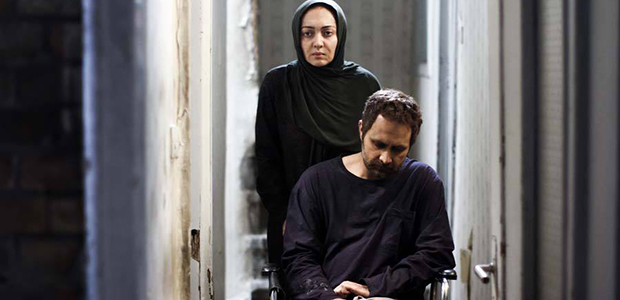Wednesday, May 9th is a very humbling film. The story of what happens when an advertisement is placed in the papers by someone offering a considerably large sum of money to anyone who needs it, the situation and it’s denouement places under observation (and therefore debate) the selective and sometimes subjective nature of philanthropy and questions whether misfortune can be gauged or measured.
The story in the film revolves predominantly around the suffering of two women – one who’s husband is paralised and requires an expensive operation and the other who is pregnant, ostracised by her foster family and now finds her husband in prison based on a series of misunderstandings and escalating tempers, requiring blood money to be freed. The film’s structure juggles between the two situations before, during and after the day of newspaper advertisement but using only dialogues and observation to guide the audience. First time director Vahid Jalilvand gives his actors the space they need to perform, and while veteran Iranian actress Niki Karimi is expectantly effective, it is newcomer Sahar Ahmadpour who is spellbinding.
The perspectives of everyone in the film are so clear that it becomes harder and harder, as the story progresses, to decide who is ‘right’. There are, as is the case in most circumstances in life, no definitive good or bad people, only those who have been shaped and molded by years of unflinching belief in a system or tradition. The film possesses that great trait found in the very best of Iranian cinema, of treating it’s characters with respect and dignity. It has the kind of clairvoyance seen most recently in the works of Asghar Farhadi and has in common with his films a script that has an air of enigma while remaining on the surface nothing more than a drama.
What won me over, more than the thespians and the men behind the camera, was how the film investigated the predicament of ranking misery, even if it was preceded by a desire to ultimately do some good. It made me think, for which I was grateful, knowing how rarely we now expect palatable cinema to challenge us anymore. I was also equally moved by the plight of the women in the film and yet this was achieved without any manipulation. This is why Iranian cinema still remains, without peer, the best exporter of thoughtful works of neorealism today.
Rating: 




